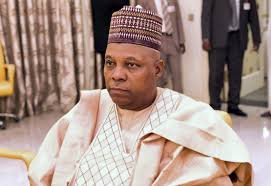The one-day women leadership summit themed: “Bridging the Gap for Women Leadership and Accountability in Kano State” was aimed at mainstreaming and strengthening women’s participation in politics, governance and leadership processes in Kano state, towards achieving gender inclusion
By Adam Alqali
Women’s participation in politics, leadership and governance processes has always been a hotly debated issue in northern Nigeria, where men’s dominance over political and governance spaces and unwillingness to give women the opportunity to actively participate in political and governance processes has led to various campaigns by women’s rights organizations for the women to be given the opportunity to also play their own part in leadership processes.
It was in a bid to fashion out strategies of getting more women to actively participate in political and governance processes that the Democratic Action Group, DAG, otherwise known as the Dispute Resolution & Development Initiative, organized the women leadership summit in Kano recently.
“The Annual Women Leadership Summit is part of DAG’s project on promoting women’s political participation which is aimed at promoting women’s role in leadership processes at all levels across politics, public and private sectors, which being implemented by DAG with the support of DFID’s Voices for Change, V4C project,” said Mustapha Yahaya, the executive director of Democratic Action Group in his welcome remarks at the summit.
He said DAG was working with political parties, labor unions and the media towards ensuring women were given the opportunity to play leadership roles in both public and private sectors in Kano state and commended the Governor of Kano State, Abdullahi Ganduje, for appointing more women into his government.
As part of his organization’s effort to mainstream women’s participation in leadership processes, DAG had established a women pressure group called Kano Women in Leadership Platform to fight for the rights of marginalized women in workplace and anywhere else.
In her remarks, the chairperson of the summit and wife of the governor of Kano state, Hafsat Ganduje, said women had an important role to play in leadership adding that educated women who were also occupying leadership positions have a responsibility to mentor younger girls to also follow their footsteps.
“Women are afraid of joining politics because of the bad impression the society have for women in politics, as being wayward. Therefore, I urge women in politics to behave decently and responsibly as well do things differently so as to stand out,” said Hafsat Ganduje who was represented by the state’s commissioner for budget and planning, Aisha Bello.
“Education is very important for women aspiring for leadership as such women need to be well educated and uphold the good virtues of leadership including transparency, accountability and rule of law so as to change all the negative stereotypes about women in politics and leadership as well as encourage other women to also aspire for political positions,” she said.
Presenting a paper on DAG’s promoting women’s political participation project, Abdulrahman Badmus, DAG’s programmes manager said as part of his organization’s effort of enhancing women’s participation in the activities of political parties and their management, they had conducted gender audit across 5 political parties in Kano to determine the total number of positions held by women within the parties to date.
“We have mapped out 286 male politicians across Kano state from across 5 different political parties with the intention of engaging and enhancing women’s participation in politics and carried out an awareness campaign among the male politicians to encourage them to promote women’s participation in party politics as well as encouraged women to support each other towards attaining their goals in politics,” said Badmus.
Speaking on stereotyping of the female fender, Hauwa El-Yakub, a women’s activist defined gender stereotyping as when you judge a group of people based on your own or other people’s opinions adding that there were both positive and negative gender stereotyping, describing female gender stereotyping as almost always negative.
“In our society women are seeing as the weaker gender and cowards despite the fact that that they are subjected to hardship and manual labour,” said El-Yakub. “Women are not given the opportunity to excel, professional women are not given equal of opportunities in the workplace, they are not getting promotion as and at when due and their expertise is not being recognized and rewarded properly.”
In her presentation on feedback and accountability, Amina Hanga, the executive secretary of the Isa Wali Empowerment Initiative said: “The more feudal governance is, with patronage well-entrenched as a tradition, the more accountability will tend to be defined by narrower personal, family or clan interests as well as those of one’s political group and patrons while the interests of the greater public would be of lower priority, if not easily ignored.”
Hanga stated that Nigerian political parties and their candidates do not have distinct policy or program platforms that include gender concerns as bases for voters’ choices in elections; instead they have a “mix of campaign promises that are often never fulfilled”.
The summit featured passionate discussions around mainstreaming the active involvement of women in politics, leadership and governance processes towards attaining gender equity. The summit was attended by notable Kano women from across politics, civil society, private and public sectors, development organizations as well as the media.



